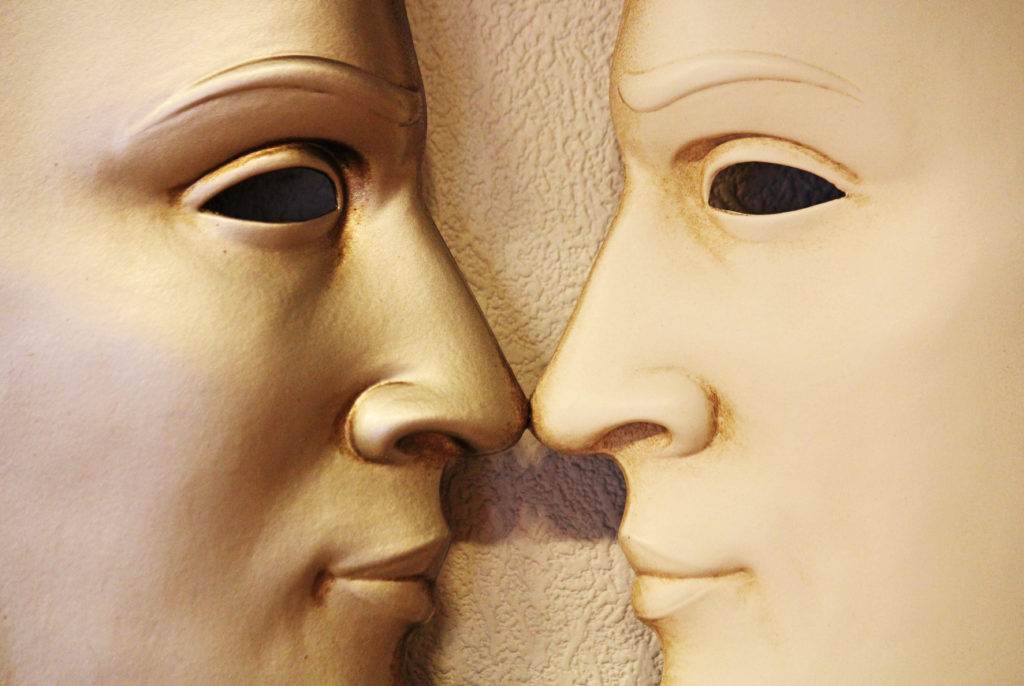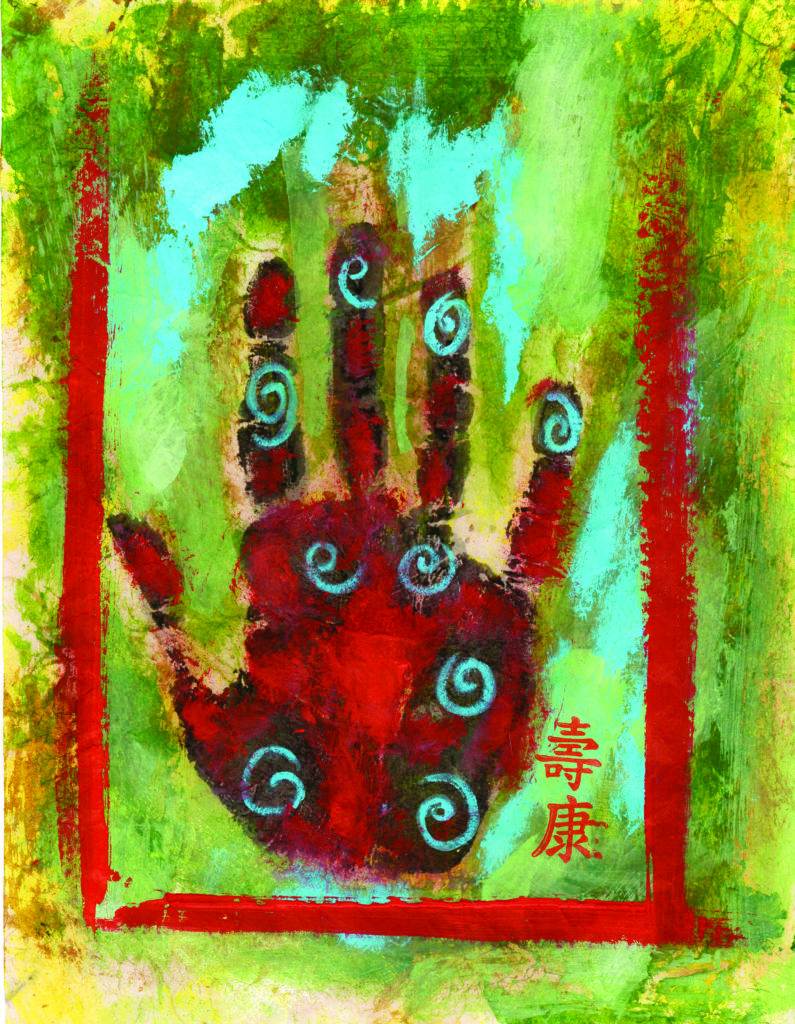Intergenerational Wounds and Wisdom
Ihad a friend who—even while attending an ultra-religious high school—began to gamble. He would sneak out at odd times, as if under some mysterious spell, to go bet on horses, blackjack, anything at all. Later he discovered that he had had an uncle (whom he had never met) who was an incorrigible gambler. The uncle had died young and apparently never finished his game. My friend seemed to have picked up his hand!
All of us carry the imprint of our ancestors, their wisdom as well as their pain. It’s part of being in the human family. For years I ran from this truth. I got the willies when I thought of the trouble in my bloodline and didn’t want anything to do with it. Now I am learning to face my ancestors—and by this I mean all who have gone before me, like my brother and sister who died young. I am learning to call them by name, honor them, and even ask them to be my allies.
Throughout our lives we store thoughts, emotions, and past memories under the floorboards of our conscious mind. And not only our own, but also the stored material of our parents and grandparents lives beneath the surface of our awareness, in what I call the ancestral realm. Even though they are dead and gone from this world, our ancestors’ strong feelings and experiences—whatever they were—still have a vibration and a gravitational pull. This pull affects us.
Sometimes we don’t realize that the strong impulses we feel are really reiterations of patterns set in motion long before we came around. Sometimes these impulses are high minded—like the pull I feel to give to charity, read dense books, listen to classical music. But other impulses take me and those around me downhill—like bouts of anger, gloominess, or ennui. Are they mine alone? I wonder. Or am I continuing some unresolved pattern of those who came before me?
So what is inheritance? The exciting new field of epigenetics speaks to this question, giving us a biological basis for understanding why we may seem to carry more than our own individual inclinations. Epigenetics demonstrates that dramatic environmental events and traumatic stresses can make enduring changes to our molecular biology. These changes not only stick in us, but can show up in our children and grandchildren, as well.

Extreme stresses don’t change our DNA, the basic structure of our genes, but they can affect how genes behave, or are “expressed” in the body. Chemical changes in the coating on our chromosomes, called methylation, make our genes more or less sensitive to the body’s messages, in effect turning relevant genes off and on. (Hence, the field of epigenetics: “epi”—on or above—our genes.)
The relatively new science of epigenetics shows that a person can carry the imprint of their parents, grandparents, and even great grandparents’ social history. Let’s say your grandparents lived through a period of extreme poverty, or they were displaced by war, or experienced racial persecution. Their descendants—you and your siblings and even your children—may show propensities to similar stress responses, both physical and psychological. Sometimes the similarities between generations are uncanny.
I learned to appreciate epigenetic findings through animal studies. In one famous study at Emory University, mice were exposed to a chemical called acetophenone—a smell akin to cherry blossoms—and then received an electric shock to their paw. In true Pavlovian style, the mice became fearful and froze whenever they came into the presence of the smell, even when they received no shock. More importantly, their offspring—even the grandpups of the original mice who had never met their grandparents or been exposed to the smell or shock—showed panic in the presence of acetophenone. The hereditary transmission of this environmental information, researchers said, was the result of epigenetics.
There are also amazing human studies emerging from decades-long research into the survivors and descendants of traumatic history. One well-documented example is the Dutch “Hunger Winter” of 1944-45, when the Nazis cut off deliveries of food and other vital supplies. It was expected that the children born from mothers who were pregnant at the time would be affected—researchers knew that starvation in the womb led to metabolic
disorders. But the surprise came later, in the 1990s, when the grandchildren of those starving mothers also were found to have higher rates of obesity and heart disease.
Epigenetic research is still new, and skeptics abound. Most important for our discussion is the approach taken by many scientists who say that even if it is true that trauma effects epigenetic changes, we always have the capacity to work with our biological realities. Knowing what our forebears went through helps us to better understand ourselves and decide on positive responses to our trauma legacies. These days, even if we have not inherited photos or stories about our ancestors, we can go to online ancestry registries to get help.
Whether your grandparents suffered in the Great Depression or from Jim Crow laws or the Nazi persecution, the psychological burdens of a family’s historical traumas often fall to the most sensitive ones of the new generation. And when we inherit such legacies, science tells us, we may be more susceptible to traumatic stresses that occur in our own lives.
Awareness is key. Although we cannot change past events, we do have the power to transform our future. Knowing the trials our ancestors endured helps us. So does reflecting on and harvesting their positive resources. Every lineage has good qualities, too, tangible gifts that you can build on—such as musical ability, mechanical knowhow, emotional resilience, generosity toward others, faith in Spirit, even the love of food!
It is also in our best interest to understand how overwhelming life events can leave a residue in our lives and those of the ones who come after us. When we have a grasp of how current and also intergenerational trauma show up we can more easily identify when we are off-balance, triggered, or feeling stressed. Then we can recalibrate with extra amounts of self-care and self-compassion.
Throughout years of my own research as a psychologist and community leader, I have found that trauma has at least four central hallmarks. These four characteristics are shared in varying degrees by trauma survivors the world over. They not only affect individuals who experience extreme stresses, they can also travel through generations.
At the core of trauma in all its many forms is Dissociation, the natural and even lifesaving mechanism by which a person splits off from reality both emotionally and mentally. In the moment of crisis, this walling off of awareness may allow us to continue to function. But in the long term, we risk becoming increasingly disconnected from ourselves and others. If we deaden ourselves to our own pain, we will also deaden ourselves to the pain of others.
Hyper-arousal is a state of intense activation and vigilance in which the stress hormones that once helped us respond to life-threatening danger now remain permanently elevated, reshaping both our physiology and our thought processes. We are easily triggered by any perceived threat. We are reactive rather than reflective. Physiologically, we become programmed to see danger rather than opportunities.
Isolation is the third hallmark of trauma. In the aftermath of overwhelming events, it is natural to pull back from others so that we can dedicate our energy to the work of recovery. But prolonged isolation can perpetuate the sense that we do not need anyone, that no one can understand or help us. Less permeable to new information and the views of others, our traumatic memories become fixed and inflexible. We become more resistant to change, less open to new opportunities for growth.
The final hallmark of trauma is Repetition: the paradoxical but well-documented tendency of people who have survived extreme stress to find or recreate situations reminiscent of their original trauma. The survivors themselves often struggle to identify the source of such uncanny reiterations of behaviors and even historical events. Trauma has blunted their conscious awareness of the magnitude of their own wounds. Whether survivors recreate their trauma situation to gain comfort, mastery, or resolution, this pattern remains unconscious and so yields little but further pain.

Living in today’s tumultuous world at the cusp of a new decade, it’s not too much of a stretch to say that most of us are living with some form of trauma. Without even touching our ancestral legacies, just to be alive in our own time, we have to navigate huge stresses: barrages of information, news alerts, social media, and family and work stresses—all while moving at high speed.
In addition, our moment in history carries its own unique traumas. Whether you are living in California, confronted by the very real threat of wildfires, or in the South or Midwest where flooding has become a norm, or are healing from the trauma of mass shootings in Pennsylvania, Florida, or Nevada: You are not alone. All of us are waking up to some form of unprecedented threat in the environments around us.
As we move toward 2020, with all of the world’s woes, it’s easy to get numb (dissociate) or fall prey (by isolating ourselves or getting hyper-aroused) to the overwhelming events of our day.
But we can choose to be warriors!
Being a warrior today means to stay awake to what we are carrying from the past and what is before us in the present. It means to cultivate tools for self-care so that we stay embodied and calm. Yoga, meditation, walking, singing, gardening, swimming are all proven to increase self-regulation and maximize our health and vitality. Sharing ideas, thoughts, dreams, and, yes, our deep fears and stresses with trusted others is also critical to surmounting today’s stresses. Taking positive action by joining together with others to volunteer, raise money for worthy causes, vote and help others to do so all help us to transform the darkness in our world, and capitalizes on the positive traits and resources that our families have given us.
When we are resourced—that is, when our cup is full—we are far more likely to add wisdom and clarity to the world around us, rather than adding to the chaos and confusion.
We are powerful beings. We may carry within ourselves the residue of past pain, and we must transform it by being awake to it. But let’s not forget that we also carry within ourselves the cumulative effect of our ancestors’ wisdom, resilience, and strength. Through awareness, self-care, and energizing the parts of ourselves that are healthy and positive, we can shape who we are and what we pass down to our own children. As Dr. Rachel Yehuda, one of my traumatology gurus, says, “Feel empowered, because science has shown us that you can change a lot of what you don’t like, and override a lot of what you can’t change.”
Our ancestors may not have been able to imagine living in times such as our own. But I like to imagine that our bright and wise ancestors are behind us, supporting our efforts. I regularly invoke my ancestors’ and teachers’ wisdom and good humor, their care for us, and their good wishes for our world.
What are the best qualities in your family lineages that you can bring forward for yourself and the world? What resilience and smarts do you have within yourself to share with others who may be hurting?
As we approach the new decade, let’s see with 20/20, looking back to transform our past legacies in our favor—and looking forward to bring awareness to the future, so that we can be warriors for good!
Rabbi Tirzah Firestone, PhD, is a Jungian psychotherapist who teaches nationally on ancestral healing and the common boundary between ancient Jewish heritage and modern psychology. This essay is adapted from her book
Wounds of Wisdom: Healing Intergenerational Jewish Trauma, from Adam Kadmon Books/Monkfish. TirzahFirestone.com